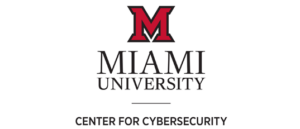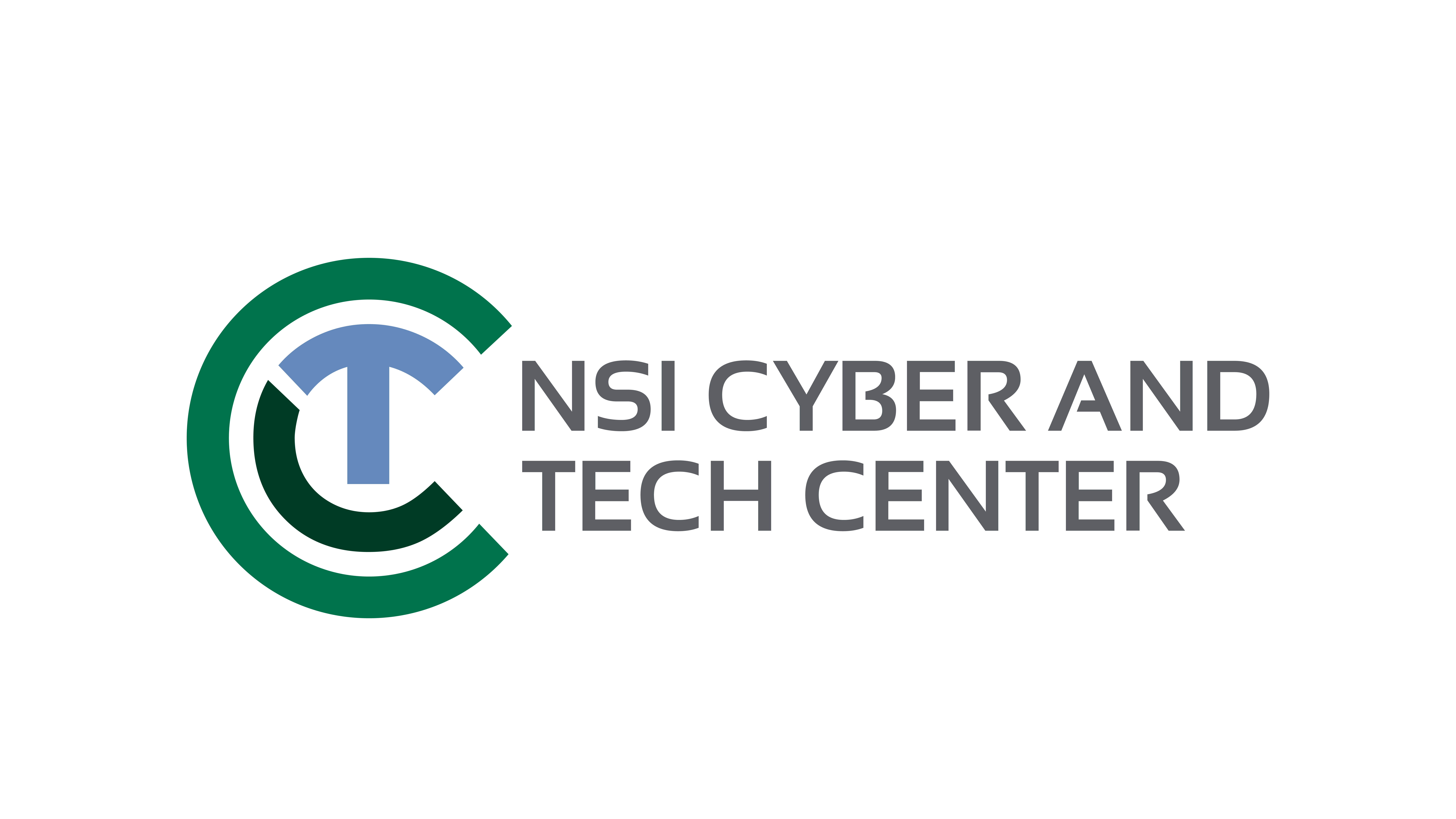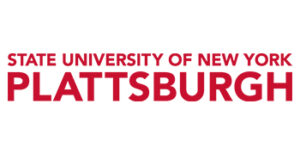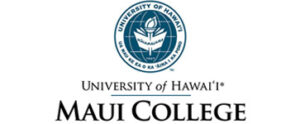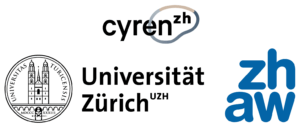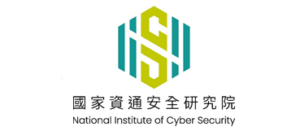Our growing membership is a national and international network of 2- and 4-year academic institutions and allied organizations that collaborate to expand cybersecurity for the public good.
Active Clinics
Beaconhouse National University
This initiative is not just about education, it’s about shaping the future of cybersecurity in Pakistan. BNU’s overarching objective is to develop a program and outcomes that serve as a benchmark for Google and comparable countries, exemplifying excellence in cybersecurity education and practice. As the sole implementing partner for Google.org’s APAC Cybersecurity Fund project in Pakistan, BNU is poised to spearhead transformative change in the nation’s cybersecurity landscape, paving the way for a safer and more secure digital future.
Dr. Moeed W. Yusuf, Vice Chancellor BNU
Uzair Shahid, Head of Innovation and APAC Cybersecurity Clinic
Benjamin Franklin Cummings Institute of Technology
The goals of the clinic are twofold: (1) To promote diversity in the cyber workforce by providing real-world experience to underrepresented students, under the mentorship of experienced practitioners, and (2) To promote proven cybersecurity practices among BIPOC-owned small and medium-sized businesses, and among nonprofits that serve low-income and BIPOC youth.
Bina Nusantara University (BINUS)
BINUS has a regular community service program introducing technology literacy, including cybersecurity, to the locally-based communities. BINUS lecturers and students travel to the country to provide cybersecurity training to community organizations, including city/county governments, small and medium-sized businesses, and nonprofits. BINUS has an integrated credit system to encourage students and lecturers to participate in the community service project.
Richard Win Putra, Information Systems Program, School of Information Systems
Yohannes Kurniawan, Information Systems Program, School of Information Systems
Yohan Mulyono, Cybersecurity Program, School of Computer Science
Boise State University
Chihlee University of Technology
The Chihlee University of Technology Cybersecurity Clinic was established to enhance cybersecurity awareness among Taiwan’s small and medium-sized enterprises (SMEs) and non-profit organizations. Through risk assessments, vulnerability detection, and other cybersecurity tools, we provide organizations with information security reports and recommendations for improvement.
The Department of Information Management at Chihlee University of Technology has a dedicated cybersecurity education team and has actively promoted hands-on cybersecurity training and network attack and defense education in recent years. In particular, we encourage students to obtain international cybersecurity certifications. Over the past two years, more than 20 students have earned certifications in ethical hacking, and several graduates have continued their studies by pursuing master’s degrees in cybersecurity. We are members of the research team at the Taiwan Academic Cybersecurity Center (TACC), established by the National Science and Technology Council as a national cybersecurity technology research center. Our future research focuses on developing a Linux-based open-source Security Information and Event Management (SIEM) platform that integrates AI-driven automatic detection capabilities with AI agents.
Wei-Hung Chen, Ph.D., Assistant Professor, Department of Information Management, Chihlee University of Technology
Claremont Graduate University
The Inland Cyber Defense Clinic (ICDC) at Claremont Graduate University is an interdisciplinary center for cybersecurity education and applied research. Rooted in CGU’s commitment to contextual and impactful scholarship, ICDC serves as a training ground for the next generation of cybersecurity professionals dedicated to protecting digital infrastructure across the Inland Empire and beyond.
Our mission is to train and mentor multidisciplinary teams in cybersecurity skills, equipping them with tools to shield vulnerable groups from cyber threats. By partnering with organizations in the Inland Empire, we provide human-centered, responsive cybersecurity education and training tailored to the unique needs of local communities and organizations.
Chinazunwa Uwaoma, Clinic Director and Founder
Itamar Shabtai, Faculty Advisor
Columbia University School of International and Public Affairs
Columbia SIPA’s Capstone Workshops apply the practical skills and analytical knowledge learned at SIPA to a real-world issue. Students from the Masters of International Affairs and Masters of Public Administration degree programs are organized into small consulting teams (6-8 students per team) and assigned a substantive, policy-oriented project with an external client.
Jason Healey, Senior Research Scholar
Cornell Tech Policy Institute
Thanks to generous support from Craig Newmark Philanthropies, the Cornell Tech Policy Institute (TPI) provides analysis of cybersecurity threats and vulnerabilities through its Cyber Test Range. Run by a team of military and veteran researchers, alongside undergraduate fellows, the Range prioritizes cybersecurity research and pro bono tool development in the pursuit of cyber civil defense.
James Rogers, Executive Director
Dakota State University
In addition to providing assessments and implementing strategies to improve security, the clinic also focuses on education, offering training sessions to teach best practices and raise awareness about cybersecurity threats. This approach ensures that organizations not only strengthen their defenses but also build lasting knowledge to maintain and advance their security measures. All services and educational resources are offered at no cost, supporting a safer digital environment for various sectors and local communities.
DePaul University
Our Clinic aims to raise organizational awareness of security and privacy risks discovered from student-led risk assessments so that incremental improvements are made in clients’ security policies and practices while students in turn gain hands-on experience that contributes to their readiness for the cybersecurity workforce.
Janine L Spears, Director
Eastern Washington University
Feng Chia University
The Feng Chia University Cybersecurity Clinic was established to assist local small and medium enterprises (SMEs) in central Taiwan in enhancing their cybersecurity defenses, with a particular focus on strengthening employees’ cybersecurity awareness. Central Taiwan is home to a world-renowned precision machinery industry, the clinic tailors its services to address the unique cybersecurity challenges faced by businesses in this internationally significant sector. Its offerings include conducting social engineering drills, providing cybersecurity awareness training, and delivering comprehensive cybersecurity risk reports. By doing so, the clinic contributes to safeguarding not only individual businesses but also the region’s industrial competitiveness.
Jung-San Lee, Ph.D., Distinguished Professor, Department of Information Engineering and Computer Science, Feng Chia University
Georgetown University
Paul Ohm, Professor of Law, Georgetown University Law Center
Meg Leta Jones, J.D., Ph.D., Provost’s Distinguished Associate Professor, Communication, Culture & Technology, Georgetown University
Jon Brescia, Senior Associate, Institute for Technology Law & Policy, Manager, Technology Impact Lab
Indiana University
The Clinic is the first of its kind to strive to enhance the critical infrastructure security of under-resourced stakeholders across Indiana and the Midwest, focusing on local municipalities, counties, school corporations, and small businesses. The Clinic will leverage Indiana University’s strong tradition of cybersecurity leadership to provide a much-needed service to communities across the Hoosier state and beyond.
Scott Shackelford, Faculty Director and Founder
Rachel Dockery, Acting Executive Director
Kean University
Following the initial assessment phase, the Cybersecurity Clinic facilitates the translation of findings into actionable solutions. Participating businesses, with annual budgets under $500,000, receive tailored recommendations and are connected with service providers capable of implementing necessary cybersecurity defenses. This comprehensive approach ensures that small businesses not only understand their risks but also gain the practical support needed to effectively mitigate them, fostering a more secure and resilient business environment. Interested businesses can apply through the provided application survey, with approved participants then completing a pre-assessment survey, all under the direction of Prof. Stan Mierzwa, Ph.D., Director of the Center for Cybersecurity.
Professor Stan Mierzwa, Ph.D., Director and Lecturer
Louisiana State University
Aisha Ali-Gombe, Associate Professor of Computer Science and Engineering
Massachusetts Institute of Technology
Professor Larry Susskind, Director, MIT Cybersecurity Clinic
Metro State University
Faisal Kaleem, Professor, Department of Computer Science and Cybersecurity; Graduate Director, Cyber Operations Program, Executive Director, MN Cyber
Miami University
James Walden, Director of the Center for Cybersecurity
National Cheng Kung University
The NCKU Computer and Network Center provides the computer and network resources required to conduct teaching, research, and administrative activities in NCKU and assists all NCKU units in developing school affairs information systems, promoting information security, and protecting personal data. The center provides services pertinent to campus optical fiber backbone networks, wireless networks, dormitory networks, emails, web platforms, cloud computing, AI computing platforms, e-school administration, digital learning platforms, and campus-authorized software.
Narn-Yih Lee, Ph.D., Professor, Computer and Network Center,
National Cheng Kung University
National Chung Hsing University
Specifically, we partner with the precision machinery industry, a cornerstone of central Taiwan’s economy, to address their unique cybersecurity challenges. Additionally, we collaborate with local NGOs and companies providing long-term care services, enhancing their data protection and privacy measures to safeguard sensitive patient information. Through these partnerships, we aim to strengthen the cybersecurity resilience of both the manufacturing sector and the non-profit sector in our region, contributing to their competitiveness and the well-being of the community.
Iuon-Chang Lin, Distinguished Professor, Department of Management Information Systems, National Chung Hsing University
National Taipei University of Technology
The Cybersecurity Clinic at Taipei Tech is dedicated to strengthening the cybersecurity resilience of non-profit organizations by providing risk mitigation and vulnerability assessment services. The initiative is primarily supported and promoted by the Financial Information and Communication Security Laboratory (FCS Lab).
FCS Lab focuses on advancing interdisciplinary research in Financial Technology (FinTech) and Information and Communication Security (ICS). It is committed to integrating information security management, digital resilience, supervisory technology (SupTech), and artificial intelligence applications to build a secure and innovative financial information environment. Guided by the principle of combining theory with practice, the laboratory not only conducts in-depth research on international information security standards (such as IEC 62443, ISO/IEC 27001, ISO/IEC 27701, ISO/IEC 42001, ISO/IEC 22301, among others) and domestic regulatory requirements, but also emphasizes practical applications. Its research areas include FinTech Security, Supervisory Technology (SupTech), Internet of Things (IoT) Security, Health Informatics Security, Information Security Risk Assessment, Privacy Impact Assessment, and Vehicular Ad-Hoc Network Security.
Yu-Chih Wei, Associate Professor
The National Security Institute at George Mason University’s Antonin Scalia Law School with Howard University School of Business
National Taitung University
In collaboration with local communities, we train students to assist small and medium-sized businesses (SMBs) and non-profit organizations (NPOs) in enhancing their cybersecurity posture. Our approach is grounded in the OSINT Framework and open-source software as the core technical foundation, complemented by the governance and audit principles of the NIST Cybersecurity Framework and ISO 27001. Through this methodology, we assess the current vulnerabilities and threats faced by target organizations.
Based on a comprehensive evaluation of cost-effectiveness and risk significance, we provide tailored recommendations for risk mitigation. These measures are further integrated with educational outreach efforts to support organizations in building digital resilience and secure environments.
Reen-Cheng Wang, Ph.D., Assistant Professor, Department of Computer Science and Information Technology, National Taitung University
National Taiwan University
The National Taiwan University Cybersecurity Clinic was established to enhance the cybersecurity resilience of non-profit organizations located in Northern Taiwan. The clinic offers risk mitigation and vulnerability assessment services. It recruits students from diverse backgrounds (e.g., CS, IS, communication, social science) to assist organizations at risk in defending themselves against cyber-attacks.
Hsu-Chun Hsiao, Ph.D., Associate Professor, Department of Computer Science and Information Engineering, National Taiwan University
National Yang Ming Chiao Tung University
The National Yang Ming Chiao Tung University (NYCU) Cybersecurity Clinic was primarily established to enhance the cybersecurity resilience of non-profit organizations in Northern Taiwan, leveraging the university’s renowned strengths in electrical engineering and computer science. While focusing on non-profits, the clinic’s strategic location near the Hsinchu Science Park—a global hub for semiconductor innovation and home to some of the world’s leading chip manufacturers—uniquely positions it to extend its services to the diverse ecosystem of small and medium enterprises (SMEs) that support this critical industry. The clinic embodies NYCU’s spirit of innovation and entrepreneurship, leveraging the university’s vibrant research atmosphere and strong industry connections to develop cutting-edge cybersecurity solutions.
Chun-Ying Huang, Ph.D., Director of Institute of Network Engineering / Professor, Department of Computer Science and Information Engineering, National Yang Ming Chiao Tung University
Northeastern State University
Additionally, this initiative is building and enhancing a cybersecurity lab for the student interns to learn the importance of how to work remotely, as is the standard practice in the cyber world.
Old Dominion University
The objective of this clinic is to provide cybersecurity awareness and services (education, risk management posture, etc.) to client organizations within Hampton Roads while providing an experiential learning opportunity for the students participating in the program as cybersecurity interns/consultants. Specifically, this clinic targets those client organizations that do not have a strong cyber presence and who can find value in gaining knowledge of cybersecurity through cybersecurity awareness and services.
This is a 15-week program that will be offered during both the fall and spring academic semesters. For more information on our program, you can watch a short video on what Cyber Clinic is and what we are doing with our program by visiting our website. https://covacci.org/cyber-as-a-service/cyber-clinic/cyber-clinic-business-information/
Teresa Duvall, Cybersecurity Clinic Director
John Costanzo, Cyber Clinic Program Manager
Pontifical Catholic University of Peru (PUCP)
The Pontifical Catholic University of Peru (PUCP) is widely recognized among the top 15 universities in Latin America and the Caribbean, and ranks as the number one university in Peru. Its Faculty of Law, founded in 1917, is consistently listed among the top 100 law schools in the world and holds the 8th position in Latin America and the Caribbean in the Law & Legal Studies category.
In line with its commitment to innovation, the Citizen Cybersecurity and Critical Infrastructure Clinic, created by the Faculty of Law, is the first initiative of its kind in Latin America. This pioneering effort is part of PUCP’s broader engagement with society and its environment.
As an innovative clinic, we focus on protecting individual digital capabilities, as well as securing the infrastructures, resources, and systems of busnises and entities, essential to the local, regional, national, and international levels—within the global cybersecurity ecosystem.
Edgardo Mercado, Clinic Director and Professor
Rochester Institute of Technology
Our students, faculty and the professional staff help evaluate and audit critical systems/applications by providing services such as penetration testing, automated vulnerability analysis, product security audits to community partners as part of their coursework, apprenticeships and capstone projects. Our clients include municipalities, non-profits, schools, small and medium sized businesses as well as few local large corporations. These services help businesses and community organizations improve their cybersecurity awareness and defenses, while providing our students, faculty, and staff with continuous experience of solving real-world problems and opportunities to contextualize classroom lectures with contemporary practice from industry.
Ersin Uzun, Executive Director of ESL Global Cybersecurity Institute
Matthew Wright, Chair of Computing Security Department
Justin Pelletier, Director of the Cyber Range and Training Center
San Diego Cyber Clinic
Through engagement of key industry, academic, and government stakeholders, including the City-led and U.S. DHS funded San Diego Regional Cyber Lab, the San Diego Cyber Clinic aims to grow an inclusive cyber workforce, increase digital security for all and serve as a model for regional collaboratives.
Lisa Easterly, President & CEO, Cyber Center of Excellence (CCOE)
Lance Larson, Co-Director of Graduate Program in Homeland Security, San Diego State University
Teresa Macklin, Director of Cybersecurity M.S. Program, California State University San Marcos
Chris Simpson, Director of the Center for Cybersecurity, National University
Spelman College
These client engagements will become “use cases” that inform best practices and enable more comprehensive services across those domains. Clients will receive the following Spelman SPEAR of services:
- Security Plan – development of a comprehensive plan to define protections needed and identify the goals, policies, and mechanisms to deliver them
- Education – training for students and clients
- Assessment – compliance based on specific industry standards
- Remediation – interpretation of assessments
Sri Lanka Institute of Information Technology
As part of this initiative, third-year cybersecurity undergraduates at SLIIT conduct structured risk assessments for participating MSMEs, identifying vulnerabilities and providing tailored recommendations to improve security. Under the guidance of faculty and industry mentors, students apply industry best practices to help businesses implement cost-effective cybersecurity measures.
By participating in this free cybersecurity support program, MSMEs gain valuable insights into their cyber risks while contributing to student learning and community resilience.
Kavinga Yapa Abeywardena, Senior Lecturer
South Texas College
Through the U.S. National Science Foundation (NSF), South Texas College (STC), located at the southern tip of Texas in the Rio Grande Valley, has established a cybersecurity clinic managed by experienced faculty and operated by students nearing completion of an Associate of Applied Science in Cybersecurity or a Bachelor of Applied Technology in Computer and Information Technologies. The clinic will offer free cybersecurity services to local organizations, giving students the opportunity to apply classroom knowledge to real-world scenarios. Participation in the clinic enables students to develop professional skills while helping the local community address the growing number of cyberattacks.
The goals of this clinic include: (1) increasing the number of cybersecurity professionals in Texas and nationwide; (2) improving the cybersecurity resilience of under-resourced local organizations; and (3) providing technical education through the implementation and advocacy of the cybersecurity clinic model. This project is funded by the Advanced Technological Education program, which focuses on preparing technicians for advanced technology fields that drive the nation’s economy.
Nicholas Hinojosa, Principal Investigator
Francisco Salinas, Co-Principal Investigator
Stillman College
Providing critical cybersecurity services not only helps secure organizations’ valuable data assets but provides students from diverse backgrounds experiential learning opportunities across multiple disciplines. Collaboration between the training center and academic department further supports the interdisciplinary approach.
Jeremy Treadwell, Director, Stillman Cybersecurity Clinic
SUNY Plattsburgh Center for Cybersecurity and Technology
The center hosts cybersecurity projects and research to offer students hands-on opportunities to practice skills learned in the classroom. Students from the cybersecurity track in MIS and from computer security majors intern at the center.
The center conducts an outreach program to local high schools to encourage students to pursue careers in cybersecurity by engaging them in projects with SUNY Plattsburgh students. In addition, the center will become an internet security resource for local businesses and nonprofit organizations. A think tank of sorts, the CCT will be a go-to place for START-UP NY businesses to engage with our students, host internships, and get information about the technology infrastructure available in the North Country.
And, the center hosts an annual cybersecurity conference which brings the best minds in cybersecurity and technology to the SUNY Plattsburgh campus. You don’t want to miss it.
If you work for a local business that wants to support our program, this is a great cause to help future “cyber warriors” that will protect our national infrastructure. If you are a nonprofit and you are worried about your computer network security and your data privacy, you can get free advice from the center.
Cristian Balan, CISSP, ACE, Coordinator, Center for Cybersecurity and Technology
Temple University
The CARE Lab works with local nonprofits that serve youth, elderly, and previously incarcerated individuals to offer free digital literacy and cyber hygiene training. The CARE Lab is committed to Diversity, Equity, and Inclusion (DEI) efforts and embraces the “cybersecurity is for everyone” mindset.
Aunshul Rege, Ph.D., Associate Professor, Department of Criminal Justice, Temple University
Toronto Metropolitan University
Katie Gibson, Catalyst Clinic Director
Tougaloo College
Trident Technical College

Tufts University
This initiative, in partnership with the School of Engineering, Tisch College of Civic Life, and The Fletcher School, builds on the interdisciplinary expertise at Tufts, and aims to build a diverse and inclusive cybersecurity workforce in the strong tradition of teaching, research, and public service at Tufts.
Ming Chow, Director
Turtle Mountain Community College
The University of Alabama
Allen Johnston, Professor, Information Systems, Statistics and Management Science
Greg Bott, Assistant Professor, Information Systems, Statistics and Management Science
Matthew Hudnall, Associate Director of the Institute of Business Analytics
University of Arizona
The UArizona Cybersecurity Clinic vision extends beyond providing risk and vulnerability assessments. It is committed to integrating college student experiential learning into our approach. By offering real-world projects, internships, and independent studies, the clinic will expose students to the practical challenges of cybersecurity, develop technical competencies, and build confidence in delivering reports in written and oral format to organizational leadership. These experiences will ensure that students have the skills and insights to thrive in the dynamic field of cybersecurity.
University Arkansas Little Rock
The clinic is actively expanding its reach across the Cyber Learn Network, connecting universities and community colleges statewide. This collaboration extends CORE’s services, enabling more students and faculty to strengthen cybersecurity resilience in every region of Arkansas.
The Clinic is part of the Computer Science Department and operates within the Center for Cybersecurity Operations, Research, and Education (CORE). It supports both the BS and MS Cybersecurity programs and offers service-learning, volunteer, and federal work-study opportunities.
UC Berkeley
Elijah Baucom, Director
Leena Singal, Lecturer
University of Georgia
In January 2022, the CyberArch program established an experiential learning internship for graduate and undergraduate students beginning spring semester 2022. The CyberArch program will expand to include more student interns and reach more organizations across Georgia as we move into the future.
Mark Lupo, CyberArch Coordinator, UGA Carl Vinson Institute of Government
University of Hawai’i Maui College
The clinic will be primarily based at the University of Hawai’i Maui College but will collaborate with other campuses within the University of Hawai’i System. The University of Hawai’i System comprises 10 campuses – three campuses that provide baccalaureate, master’s and doctoral degrees, and seven campuses that fall within the University of Hawai’i Community College System. All organizations will be involved with this clinic, as the impact of the clinic will be distributed across the entire state.
University of Maryland, Baltimore County
The clinic follows a three-pronged approach: vulnerability assessments, vulnerability scanning and remediation, and security operations training. This comprehensive framework provides actionable insights to underserved organizations and equips students with practical skills in cybersecurity management. By leveraging interdisciplinary expertise, UMBC students deliver tailored, high-impact cybersecurity recommendations that bolster resilience across the state of Maryland and the broader community, while gaining critical experience for careers in cybersecurity and risk management.
Jack Suess, UMBC VP of Information Technology and CIO
Laura Mateczun, UMBC Cyber Clinic Coordinator
University of Maryland Global Campus (UMGC)
We offer no-cost or low-cost services-including Al-enhanced threat detection, vulnerability assessments, workforce development, and critical-infrastructure resilience-to underserved businesses, K-12 systems, and public utilities. Our cross-disciplinary teams deliver personalized, actionable strategies that strengthen digital defenses and bolster statewide cyber deterrence and posture.
Students gain hands-on experience in risk management, incident response, and secure infrastructure design, developing career-ready skills as they serve the community. By fostering collaboration, innovation, and public service, the UMGC Cybersecurity Clinic cultivates tomorrow’s cyber leaders and enhances Maryland’s collective resilience.
Dr. Calvin Nobles, UMGC Portfolio Vice President & Dean of the School of Cybersecurity & IT
Dr. Tamie Santiago, UMGC Cybersecurity Clinic Sr. Director
Dr. Helen Barker, Department Chair of Cybersecurity
University of North Carolina at Charlotte
The UNC Charlotte Cybersecurity Clinic, led by the College of Computing and Informatics and in partnership with Apparo, is a pioneering course-based initiative that empowers students while strengthening the digital defenses of local nonprofits, small businesses, and public sector organizations. By offering hands-on cybersecurity services—such as threat modeling, risk assessments, and tailored recommendations—the clinic helps resource-constrained partners within a 50-mile radius proactively guard against cyber threats. At the same time, it cultivates the next generation of cybersecurity leaders and fosters a resilient digital community across the Carolinas.
Cori Faklaris, Assistant Professor
Vinicius Da Costa, Adjunct Instructor
Bei-Tseng “Bill” Chu, Professor and Head of the Cybersecurity Program
University of North Carolina Greensboro
Committed to bridging the gap, the SCGA is dedicated to providing education, training, and services to underserved audiences, ensuring equitable access to cybersecurity expertise. In addition, the SCGA will leverage the existing programs in cybersecurity analytics at UNCG to develop new cybersecurity knowledge, artifacts, and practices.
University of Nevada, Las Vegas
Qualified students after the training are allowed to offer the services to customers and can build up valuable hands-on experience over multiple years while helping the community. The clinic partners with the UNLV SBDC (Small Business Development Center) and a number of cybersecurity firms around the country, which offers career opportunities to students and advanced services to selected customers.
Professor Yoohwan Kim, Director, UNLV Free Cyber Clinic
University of Texas at Austin
During the first semester course, students learn key cybersecurity defense concepts and skills, including vulnerability assessment, network configuration and security, access controls, authorization techniques, responding to a cyberattack, and penetration testing, as well as associated skills required to implement these abilities effectively in a real business or non-profit institutional setting. Students then deploy these skills—under supervision—in a real world setting in the second semester course, gaining invaluable practical experience. The clients, for their part, get the benefit of a substantially improved defensive posture.
Professor Francesca Lockhart, Cybersecurity Clinic Program Lead, Robert Strauss Center for International Security and Law at the University of Texas at Austin
The University of Texas at El Paso
Moreover, the clinic provides students with valuable real-world experiences that bridge academic theory with practical application, contributing to developing the next generation of cybersecurity professionals.
University of Texas at San Antonio
The expansion will enable students outside of the classroom environment to provide assistance to local organizations needing advice and help with their cybersecurity programs. The clinic will host a help desk that local government, small business, and non-profit organizations can contact for assistance. These organizations have unique needs, as they typically have limited resources, but provide critical services to the whole community. In addition, the CIAS believes that cybersecurity clinics can be a catalyst for improving community cybersecurity under the Community Cyber Security Maturity Model (CCSMM).
Natalie J. Sjelin, Interim Director, Center for Infrastructure Assurance and Security, Department of Computer Science at The University of Texas at San Antonio
University of Zurich and Zurich University of Applied Sciences
To increase resilience to cyberattacks, security must be actively addressed. However, many organizations lack the awareness, skills, or resources to do so. This is where the CYRENZH Cybersecurity Clinic can provide support. Established in 2024, the clinic is jointly operated by the University of Zurich (UZH) and the Zurich University of Applied Sciences (ZHAW). Its mission is to offer pro bono cybersecurity services to selected organizations in Switzerland — including SMEs, municipalities, schools, non-profits, start-ups, and associations — through student engagement.
The clinic pursues two main goals: (1) to improve the cybersecurity posture, knowledge, and awareness of participating organizations, and (2) to train the next generation of cybersecurity professionals by enabling students to apply university-acquired knowledge in real-world settings. With students from various universities and disciplines involved, the clinic addresses a broad range of cybersecurity aspects, including technology, management, organization, and human factors.
Dr. Melanie Knieps, University of Zurich
Prof. Dr. Marc Rennhard, ZHAW School of Engineering
Prof. Dr. Nico Ebert, ZHAW School of Management and Law
West Virginia State University
The WVSU Cybersecurity Clinic prioritizes hands-on training utilizing WVSU’s cutting-edge CyberHive, a physical critical infrastructure Industrial Control System (ICS). This state-of-the-art lab offers immersive experiences for operators, high school students, and undergraduate computer science students. Furthermore, WVSU anticipates the launch of a new Bachelor’s program in cybersecurity to further enhance educational offerings. The WVSU Cybersecurity Clinic and CIC actively engage in cybersecurity research to develop innovative solutions for protecting critical infrastructure, aiming to contribute to the advancement of cybersecurity knowledge and practices. Community outreach is integral to WVSU Cybersecurity Clinic’s mission, providing cybersecurity services and awareness programs to empower individuals and organizations with the knowledge to defend against cyber threats effectively. WVSU Cybersecurity Clinic and CIC are committed to fostering a culture of cybersecurity excellence, preparing the next generation of professionals, and ensuring the security of our critical infrastructure.
Dr. Ali Al-Sinayyid, Director of Cybersecurity Innovation Center
Yuan Ze University
The Department of Information Management at Yuan Ze University is dedicated to advancing knowledge in the field of information security. We place great emphasis on bridging theory and practice, striving to address the ever-changing challenges in this domain.
Cheng-Ta Huang, Ph.D., Associate Professor, Department of Information Management, Yuan Ze University
Allies
Computing Alliance of Hispanic-Serving Institutions
CAHSI, which involves over 80 member HSIs in the U.S. and Puerto Rico, has made expanding competencies in cybersecurity across member institutions a priority. Drawing upon its long-standing convening power and ability to support HSIs, CAHSI is excited to be an Ally of the Consortium of Cybersecurity Clinics and further engage HSIs in outreach, awareness building, and training around the cybersecurity clinic model; facilitate partnership among HSIs with existing cybersecurity clinics that are HSIs; and to ensure capacity building support.
Elizabeth Hall, Director of Research Initiatives
Virtual Routes
Max Smeets, Director
Global Cyber Alliance
Our success in delivering the solutions we build at global scale is dependent on the relationships we build with organizations that have access at the regional and local level to the end users.
Gill Thomas, Director of Engagement, Capacity & Resilience Program
National Institute of Cyber Security (NICS)
NICS’ overarching mission is to deliver cutting-edge cybersecurity technical assistance and conduct advanced research. This role augments the functions of both the Ministry of Digital Affairs and the Administration for Cyber Security (ACS). Within this framework, the Ministry of Digital Affairs is responsible for drafting national cybersecurity policy objectives and setting overall direction, while the ACS focuses on implementing and promoting cybersecurity policies.
In the context of cybersecurity clinics, NICS plays a crucial supporting role. It assists with funding, facilitates communication with the U.S. CCC, helps establish guidelines and regulations, and provides administrative support. These efforts contribute significantly to the development and smooth operation of first cybersecurity clinics in Taiwan.
Hsin-Yuan “Megan” Hu, Manager, Cybersecurity Awareness Research & Outreach Division, Center of Talent Empowerment, NICS
R Street
We work extensively on both state and national policy, focusing on issues that other groups tend to neglect. Our specialty is tackling issues that are complex, but do not necessarily grab major headlines. These are the areas where we think we can have a real impact. We believe free markets work better than the alternatives. At the same time, we recognize that the legislative process calls for practical responses to current problems. To that end, our motto is: “Free markets. Real solutions.”
Brandon Pugh, Director, Cybersecurity and Emerging Threats














